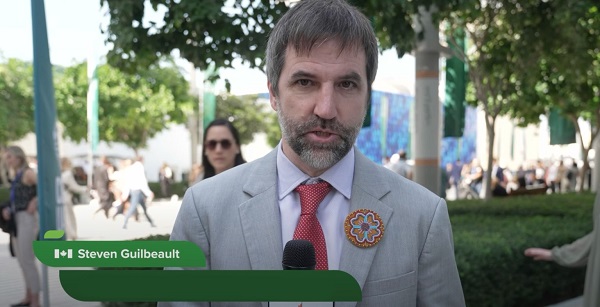espionage
FBI Buried ‘Warning’ Intel on CCP Plot to Elect Biden Using TikTok, Fake IDs, CCP Sympathizers and PRC Students—Grassley Probes Withdrawal

Intel warned of tens of thousands of illegal votes via fake IDs tied to CCP-linked students; FBI shut it down days after Wray denied foreign interference.
Senate Judiciary Committee Chairman Chuck Grassley announced that his panel will launch a formal investigation into why the FBI in September 2020 ordered the withdrawal and destruction of an explosive “raw intelligence” report alleging that Beijing harvested American private identity data from millions of TikTok accounts, enabling Chinese intelligence to manufacture fraudulent driver’s licenses that “would allow tens of thousands of Chinese students” to cast mail-in ballots in favor of Joe Biden during the 2020 presidential election.
Grassley confirmed receipt of the now-declassified document and said it raises “serious national‑security concerns that need to be fully investigated by the FBI.” The Senate Judiciary Committee is now requesting internal communications, a formal justification for the FBI’s “substantive recall” of the document, and a review of the FBI’s compliance with federal intelligence record-keeping laws.
The pre-election document does not assert that fraudulent ballots were cast, and explicitly warns that the information should not be actioned without FBI coordination. But the scale and specificity of the allegations—now under Senate scrutiny—have dramatically reignited questions over how U.S. intelligence agencies handled politically sensitive reports implicating the Chinese Communist Party in election interference.
According to Fox News, the heavily redacted FBI intelligence now under investigation has declassified sections that reveal the potential of a Beijing-directed voter fraud campaign designed to leverage Chinese international students, fraudulent ID records mailed into U.S. states, and populations sympathetic to the Chinese Communist Party living in America, all in efforts to elect Joe Biden over Donald Trump.
The Bureau is a reader-supported publication.
To receive new posts and support my work, consider becoming a free or paid subscriber.
One section of the report cited by Fox News states the subject as: “[REDACTED] Chinese Government Production and Export of Fraudulent US Drivers Licenses to Chinese Sympathizers in the United States, in Order to Create Tens of Thousands of Fraudulent Mail-In Votes for US Presidential Candidate Joe Biden, in late August 2020.”
The FBI’s source allegedly obtained the information from an identified sub-source, who claimed they obtained the information from unidentified PRC government officials. One of the report’s core claims is that in late August 2020, the Chinese government had produced a large amount of fraudulent United States drivers licenses that were secretly exported to the United States.
The memo states: “The fraudulent drivers licenses would allow tens of thousands of Chinese students and immigrants sympathetic to the Chinese Communist Party to vote for US Presidential Candidate USPER Joe ((Biden)), despite not being eligible to vote in the United States.”
As reported yesterday by The Bureau, the FBI’s report aligns with seizures from CBP in Chicago, where officers at the International Mail Facility intercepted nearly 20,000 counterfeit U.S. driver’s licenses in the first half of 2020—the vast majority shipped from China and Hong Kong. The licenses were often destined for college-aged recipients, with many containing real ID numbers and scannable barcodes, raising alarms that they could be used for fraudulent identification.
The FBI election interference report—allegedly pulled from circulation by then-Director Christopher Wray—contained consequential assertions about TikTok, which has been identified in subsequent U.S. intelligence assessments as a Chinese information warfare and election interference asset.
The 2020 memo stated: “China had collected private US user data from millions of TikTok accounts, to include name, ID and address, which would allow the Chinese government to use real US persons’ information to create the fraudulent drivers license.” It added that the fraudulent drivers licenses were to include true ID number and true address of U.S. citizens, making them difficult to detect, and that China planned to use the fraudulent drivers licenses to account for tens of thousands of mail-in votes.
Beijing has already succeeded in directing the social video app TikTok to “censor content outside of China,” according to a classified Department of Justice brief filed last summer in a case that casts one of the world’s most popular media platforms as a Chinese Communist Party weapon poised to attack Americans during an election or geopolitical crisis in the same manner as Chinese cyber-spies and hackers that are currently buried within North American critical infrastructure.
Yet the FBI “warning” document also reveals internal doubts. According to Fox News, FBI notations flagged gaps in the TikTok claim, stating that “a person’s address information was not a valid field when creating a TikTok account. It was unspecified how China would attain US address data from the application.” Another annotation stated that the source is available for re-contact.
The following page of the intelligence report reportedly included a directive for “SUBSTANTIVE RECALL,” dated September 25, 2020—one day after FBI Director Wray told Congress that the Bureau had seen “no coordinated voter fraud” ahead of the 2020 election. The FBI’s internal context note acknowledged that the source received the information from a sub-source who cited anonymous PRC officials. The warning section of the document repeated that the allegations were part of “an information report, not finally evaluated intelligence.” The document also stated: “Recipients should also ensure that any citation of the information in finished intelligence products draws on the SUBSTANTIVE RECALL of this report rather than the previous version.”
The document reportedly instructed all recipients to destroy all copies of the original report and remove the original report from all computer holdings, and to cite only the recall order in any future analysis. That sequence—first, a claim implicating China in voter manipulation; next, immediate questioning of the methodology; and finally, a full internal shutdown—has now become the focus of a politically and institutionally charged congressional investigation.
The remainder of the document is heavily redacted, Fox reported, and more information is being requested from the FBI as part of the Senate’s investigation. “Grassley is requesting additional documentation from the FBI to verify the production and is urging the FBI to do its due diligence to investigate why the document was recalled, who recalled it and inform the American people of its findings,” a Grassley spokesperson reportedly told Fox News.
The FBI memo’s resurfacing also casts renewed light on a broader internal struggle inside the U.S. intelligence community in 2020: whether to formally acknowledge China’s intent or actions in shaping the presidential election. At the time, DNI John Ratcliffe and a small group of dissenting officials reportedly suggested that China had taken covert steps to influence the race—particularly in opposition to Donald Trump—and that this was being downplayed or scrubbed from official analyses for political reasons. Ratcliffe’s January 7, 2021 memo to Congress directly accused senior intelligence officers of pressuring analysts to downplay or suppress these findings, especially at the CIA and ODNI. He wrote that the 2021 Intelligence Community Assessment (ICA) failed to fully and accurately reflect the scope of the Chinese government’s efforts to influence the 2020 U.S. federal elections.
According to Ratcliffe, internal IC investigations found that China analysts appeared reluctant to assess Chinese actions as interference because they tend to disagree with the administration’s policies. The whistleblower report from ODNI’s own Analytic Ombudsman warned of undue pressure on analysts offering alternative views and concluded that politicization existed from both above and below.
One of the officials who refused to back down was Christopher Porter, then the National Intelligence Officer for Cyber, who claims that his minority assessment on Chinese influence was effectively buried. Porter alleged in late 2024 that he was harassed and forced out of government after submitting his dissent.
In a series of posts on X applauding the decision to release the report to Grassley, Porter wrote that he was upbraided four years ago for raising similar warnings. He argued that the failure of U.S. intelligence to confront China’s espionage—particularly its hacking of critical infrastructure and telecommunications networks—would only embolden the regime. “We are now reaping the harvest of that bad decision,” he added. In another message, Porter emphasized that “politics has to stop at the water’s edge,” urging national leaders to call out Chinese influence operations “at the highest level.”
Porter went further, criticizing U.S. allies like the United Kingdom for dragging their feet on national security decisions regarding China’s penetration of telecommunications. Canada, under Liberal Prime Minister Justin Trudeau, took about three years to decide on banning Huawei. Critics such as Porter attribute such reluctance to economic motives overriding sober analysis.
Today, with the FBI’s suppressed memo in the hands of the Senate Judiciary Committee, Porter’s and Ratcliffe’s minority views are no longer isolated warnings. They are now part of a growing body of evidence suggesting that political sensitivity—especially over which party Beijing may prefer—might have played a role in sidelining national security intelligence during one of the most consequential U.S. elections in history.
The Bureau is a reader-supported publication.
To receive new posts and support my work, consider becoming a free or paid subscriber.
Invite your friends and earn rewards
espionage
Starmer Faces Questions Over Suppressed China Spy Case, Echoing Trudeau’s Beijing Scandals
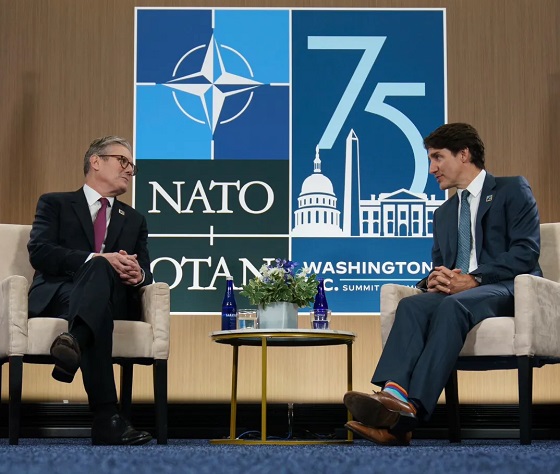
Alleged political meddling in a collapsed espionage case targeting Starmer’s China-critical opponents sparks crisis of confidence in Whitehall’s independence.
Keir Starmer’s government is undergoing a credibility crisis over national security, with the Prime Minister himself facing mounting questions about whether he wielded political influence to have Whitehall’s independent prosecution service abruptly drop a rare Official Secrets Act case alleging a China-directed political-intelligence network inside Parliament — one that reportedly targeted Starmer’s opponents critical of Beijing.
Two men — parliamentary researcher Christopher Cash and academic Christopher Berry — had been due to stand trial this autumn, accused of gathering sensitive political research from Westminster between late 2021 and February 2023, including on the China Research Group of Beijing-sceptic MPs, and funnelling it onward to a senior figure in the Chinese Communist Party.
“The government deliberately collapsed the trial of two people who spied on MPs for China. I’m one of the sanctioned MPs & we will get to the truth about who ordered this. I believe this goes all the way to the top,” Conservative MP Neil O’Brien wrote Sunday.
The geopolitical echoes of this case resonate far beyond Westminster. A similar pattern has unfolded in Canada, where Justin Trudeau’s Liberal government — also perceived as favouring trade and engagement with Beijing — was accused of turning a blind eye to intelligence warnings that China’s Ministry of State Security was gathering information on Conservative MPs critical of Beijing, including Michael Chong, who incurred China’s wrath by sponsoring a motion recognizing the CCP’s repression of Uyghurs as genocide.
Multiple outlets have reported that British intelligence believed the information gathered on Conservative MPs critical of China inside Whitehall was destined for Cai Qi, China’s fifth-ranking leader, a Politburo Standing Committee member and confidant of Xi Jinping. The Guardian’s reporting of Cai’s alleged role underscores the extraordinary level of authority to which information targeting British parliamentarians may have been directed. The China Research Group itself included high-profile MPs such as Iain Duncan Smith, Tom Tugendhat, and Neil O’Brien — all sanctioned by Beijing for their outspoken positions on Hong Kong, Xinjiang, and broader human-rights issues.
In Canada, a similar pattern emerged when Conservative MP Michael Chong was likewise sanctioned by China and later revealed as a target of Ministry of State Security intelligence-gathering. Justin Trudeau and his staff were accused of failing to alert Chong to Canadian intelligence reports forwarded to the Prime Minister’s senior officials, which detailed Beijing’s targeting of Chong and his family in Hong Kong.
The emerging evidence of parallels is striking: in both countries, during the same 2021 time period, legislators sanctioned and vilified by Beijing were simultaneously subjected to covert information-collection efforts — suggesting a coordinated strategy by the Chinese Communist Party to identify, monitor, and neutralise its most vocal democratic critics.
At the centre of the growing political storm in Whitehall is an allegation that echoes Justin Trudeau’s reported downplaying of threats against his Conservative opponents. In London, the claim is that Downing Street’s top security adviser, Jonathan Powell, decided the government would not permit China to be described in court as an “enemy” — language prosecutors believed was essential to meet the statute’s threshold. After that decision, the Crown Prosecution Service declared it could no longer proceed for “evidential reasons,” and the case collapsed. If accurate, the intervention would represent an extraordinary instance of political calculation colliding with the operational demands of counter-espionage.
With new reporting from Britain today, Starmer is coming under scrutiny for a potential motivation behind what would amount to improper meddling in an independent prosecution — driven, critics say, by Labour’s desire to sweeten relations with Beijing for economic reasons.
Downing Street’s official response to the dropped prosecution has only fuelled the political fire. The Prime Minister’s spokesperson said it was “extremely disappointing” that the CPS decision meant Cash and Berry would not face trial, insisting the decision was “made rightly independently of government.” That claim of independence, however, now looks increasingly hollow in light of Times and Telegraph reporting that the decisive instruction on the “enemy” wording originated from Starmer’s own national-security team.
The move — and the CPS’s refusal to explain why it could present no evidence — has triggered outrage across party lines. Former Conservative security minister Tom Tugendhat, joined by four other MPs, has written to Director of Public Prosecutions Stephen Parkinson demanding a full account of the decision to drop the case and clarification of any communications between the CPS, No. 10, and the Cabinet Office.
The legal explanation for the collapse of this explosive case is technical: the wording of the 1911 Official Secrets Act, which criminalised acts “useful to an enemy.” Prosecutors reportedly determined that to meet the statutory threshold, China would need to be explicitly designated an enemy — a label the current government refused to authorise.
The National Security Act 2023, which replaced the century-old statute, eliminates that outdated “enemy” clause and creates broader offences for “foreign interference” and “assisting a foreign power.” But the new law came into force only in December 2023 and cannot be applied retrospectively to alleged conduct that occurred between 2021 and 2023, according to several legal experts.
In Canada’s Foreign Interference Inquiry, Trudeau faced questioning on his government’s lack of response to CSIS’s “Targeting Paper” — a high-level intelligence document that described how Beijing collected information to classify which Canadian MPs could help China and which could hurt it, in apparent efforts to guide Beijing’s election interference and political influence campaigns.
Trudeau and his senior aides claim he was never informed of the explosive report. Drafted in 2021 and circulated to a small number of public servants in 2023, the Targeting Paper “named names” and outlined how Chinese diplomats categorised Canadian parliamentarians into three groups: those friendly towards Beijing, those neutral or persuadable, and those deemed antagonistic due to their criticism of China’s human-rights record, particularly on issues like the Uyghurs and Hong Kong.
Echoing the allegations now confronting Starmer’s government, Trudeau’s national security adviser and senior bureaucrats reportedly refused to adopt Canadian intelligence’s view that Beijing’s targeting of MPs represented a serious national-security threat that could undermine Canada’s sovereignty, testimony from Ottawa’s inquiry suggested.
In the hearings, Trudeau’s former senior officials Jody Thomas and Janice Charette defended their decisions not to escalate two high-impact 2022 intelligence reports on Chinese interference — including the Targeting Paper — to the Prime Minister.
Crime
The “Strong Borders Act,” Misses the Mark — Only Deep Legal Reforms Will Confront Canada’s Fentanyl Networks
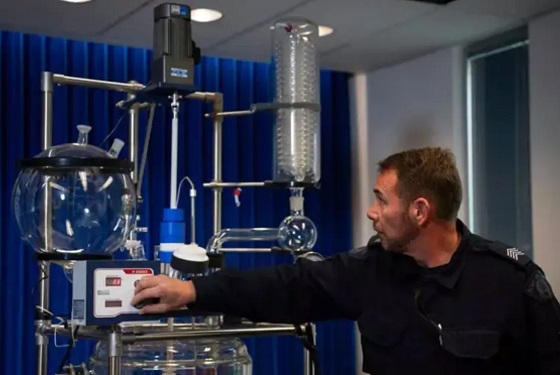
The fallout is a grim roll call of major investigations that collapsed before trial in British Columbia, Alberta, Ontario, and Quebec: Project E-Pirate, E-Nationalize, Syndicato, Cobra, Brisa, and Endgame all aborted.
Bill C-2, Ottawa’s so-called “Strong Borders Act,” promises to secure Canada’s frontiers with new surveillance powers, sweeping ministerial discretion, and higher penalties. But as veteran Canadian investigators know, the bill misses the point. It is an omnibus solution that expands the state’s reach online, while leaving untouched the very legal choke points that have made Canada a permissive financial platform and fentanyl laboratory for cartels, Triads, and state-linked terror networks.
For more than a decade, Canadian and U.S. enforcement leaders have pointed to the same failures. Police are confronting transnational fentanyl labs, a flood of Chinese chemical precursors, Hezbollah-linked laundering, and Mexican cartels setting up on Canadian soil.
Yet they are forced to fight these threats with laws “never designed for today’s criminal landscape,” as Canadian Chiefs of Police president Thomas Carrique recently warned.
Former RCMP investigator Calvin Chrustie testified before British Columbia’s Cullen Commission that, due to judicial blockages arising from Charter of Rights rulings, by 2015 it had become effectively impossible to obtain wiretaps on Sinaloa Cartel figures in Vancouver.
This year, RCMP Assistant Commissioner David Teboul said a proliferation of “commercial-grade chemistry” fentanyl labs in British Columbia — like the sophisticated factory dismantled last year in Falkland, north of Lake Okanagan, where Mexican cartels have quietly taken over domestic biker gang networks — underlined the urgent need for legislative reform.
Canada wasn’t always so overwhelmed by lethal foreign gangs. What happened? Overly permissive immigration rules and porous borders explain part of the story, but the deeper problem lies in the laws that have steadily eroded enforcement power since the early 1990s.
Instead of enabling prosecutions against transnational traffickers of humans, narcotics, and weapons, unintended consequences from misguided jurisprudence surrounding Canada’s Charter of Rights now ensure these cases almost always collapse, or are simply avoided by the Crown.
Two Supreme Court rulings — Stinchcombe and Jordan — have gutted the capacity to prosecute complex crime. Stinchcombe requires exhaustive disclosure of sensitive intelligence, often impossible in Five Eyes investigations that depend on close cooperation between Canada and the United States.
Jordan imposes strict trial ceilings that tick down while Stinchcombe disclosure battles drag on. Criminal lawyers know these two rulings function as trump cards stacked in favor of their clients.
The fallout is a grim roll call of major investigations that collapsed before trial in British Columbia, Alberta, Ontario, and Quebec: Project E-Pirate, E-Nationalize, Syndicato, Cobra, Brisa, and Endgame all aborted. Project Collecteur — a landmark probe linking Hezbollah and foreign terror-financing networks across Canadian cities to transnational drug money laundering, built on U.S. and Australian intelligence — barely made it to court, despite its far-reaching implications.
It was crippled by RCMP corruption and by underfunded, risk-averse agencies that abandoned Canadian leads painstakingly developed by Five Eyes partners.
How bad was it?
Farzam Mehdizadeh, a major Iranian money launderer and suspected weapons proliferation actor who ran a Toronto currency exchange while shuttling bags of drug cash between Toronto and Montreal, escaped back to Iran just as the RCMP was poised to arrest him on money-laundering charges. The beneficiary of a leaky national police force, evidently.
A senior U.S. enforcement source told The Bureau that during Project Collecteur, the RCMP stumbled onto an even bigger Chinese money launderer while probing Iranian networks, but the agency ignored the file — reportedly unable to shift its original investigation focus onto new enterprise targets.
These kinds of policing failures and decisions are part of the reason President Donald Trump has said senior U.S. investigators told him that Canada lacks the resources and capacity to confront fentanyl trafficking gangs.
In Washington, there is frustration — and at times a lack of understanding — that Stinchcombe either bars or effectively scares the Mounties out of cooperating with U.S. agencies or sharing intelligence.
Derek Maltz, former DEA chief under President Trump, pointed to the Falkland fentanyl super-lab case — part of a U.S.-led probe into Chinese precursor suppliers — as the latest example of “historical issues with the RCMP not sharing properly,” calling it a “major disaster that happened on that big lab in British Columbia.”
“It goes down to the basic information sharing, the antiquated laws,” Maltz said. After meeting with current Canadian police leadership, he concluded: “They’re so far behind and the laws are so antiquated and so archaic.”
The cost is staggering. Officers walk away from enterprise files, knowing they cannot meet disclosure or trial deadlines. Prosecutors refuse to take high-risk cases. U.S. agencies stop sharing intelligence that could be exposed in open court. Canada defaults to “low-hanging fruit” prosecutions while the upper echelons of global networks operate with near impunity.
Meanwhile, at the border, permissive Non-Resident Importer rules allow foreign entities to move chemical precursors through Canadian ports under layers of corporate opacity. Chinese logistics hubs repackage bulk fentanyl shipments bound for Vancouver, obscuring Canada’s visibility into their true origin. Once in Canada, packages can be collected by foreign nationals who further conceal their identities. To visualize the scheme, think of an “end-to-end encryption” app — Chinese trafficking networks enjoy the same kind of seamless concealment when shipping narcotics into Canada.
At the same time, Vancouver’s port — stripped of federal police under Jean Chrétien’s Liberal government — has container inspection rates below one percent, according to a British Columbia study.
It doesn’t seem that Bill C-2 will do anything to address these core vulnerabilities. It gives Ottawa broad powers to expand online surveillance, which may help with the drug networks that now brazenly advertise street sales on social platforms. But it would do so by subjecting all Canadians to invasive cyber surveillance. The bill does not target the transnational criminals who are already easy to identify and well known to law enforcement. These networks continue to operate openly in Canada, confident that the Charter shields them from real prosecution.
Meanwhile, experts warn that parts of C-2 resemble Ottawa’s wish list of new powers tossed into a grab bag. The effect is the opposite of inspiring public confidence or addressing the real enforcement crisis. As written, Bill C-2 could do more harm than good. Mark Carney’s government should shelve it and start again with the reforms Canada actually needs.
The Bureau is a reader-supported publication.
To receive new posts and support my work, consider becoming a free or paid subscriber.
-
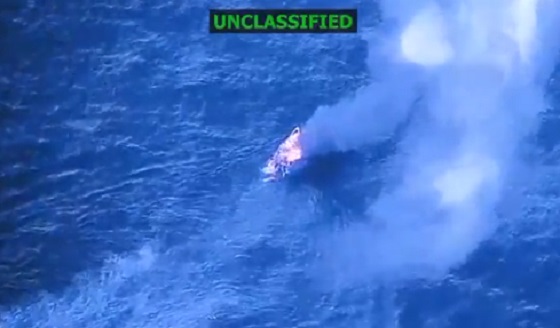
 International2 days ago
International2 days agoTrump says U.S. in ‘armed conflict’ with drug cartels in Caribbean
-

 Business1 day ago
Business1 day agoJobs Critic says NDP government lied to British Columbians and sold out Canadian workers in billion dollar Chinese ferries purchase
-

 Indigenous2 days ago
Indigenous2 days agoBloodvein First Nation blockade puts public land rights at risk
-

 Alberta23 hours ago
Alberta23 hours agoJason Kenney’s Separatist Panic Misses the Point
-
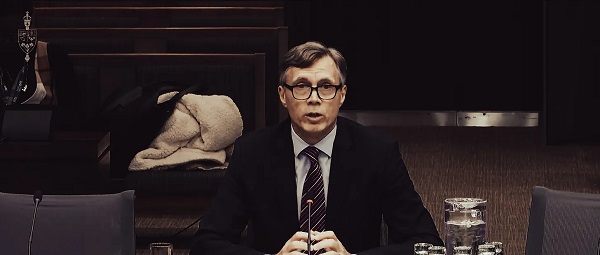
 Business1 day ago
Business1 day agoDemocracy Watch Drops a Bomb on Parliament Hill
-

 Automotive20 hours ago
Automotive20 hours agoBig Auto Wants Your Data. Trump and Congress Aren’t Having It.
-

 espionage8 hours ago
espionage8 hours agoStarmer Faces Questions Over Suppressed China Spy Case, Echoing Trudeau’s Beijing Scandals





